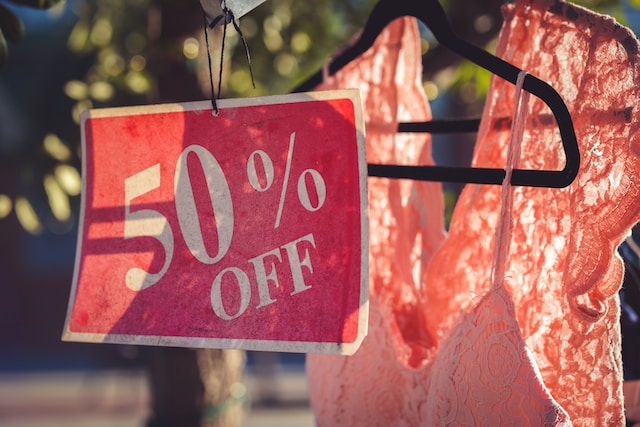Fake Ticket Sellers Scam Punters: Ticketmaster Issues Urgent Warning

Table of Contents
Identifying the Tactics of Fake Ticket Sellers
Fake ticket sellers employ increasingly sophisticated methods to deceive buyers. Understanding their tactics is the first step in protecting yourself.
Common Scamming Methods:
The methods used by fake ticket sellers are diverse, but some common strategies include:
- Fake websites mimicking legitimate platforms: These websites often have similar URLs and designs to official ticketing sites like Ticketmaster, designed to trick unsuspecting buyers. Look for subtle differences in URLs and website design inconsistencies. A slightly misspelled URL or a poorly designed site is a major red flag.
- Social media scams offering incredibly low prices or "last-minute deals": Be wary of unbelievably cheap tickets offered on platforms like Facebook, Instagram, or Twitter. These deals are often too good to be true and may lead to counterfeit tickets or no tickets at all. Always verify the seller's legitimacy before engaging.
- Email phishing attempts with convincing-looking offers: Fake ticket sellers often send phishing emails mimicking official ticketing companies, luring victims into clicking malicious links or providing sensitive information. Never click links in unsolicited emails; always go directly to the official website.
- In-person sales from unauthorized vendors near venues: Beware of individuals selling tickets outside venues, especially those offering significantly discounted prices. These tickets are frequently counterfeit or invalid.
- Use of counterfeit tickets: These tickets look legitimate but are actually fake. They may be skillfully copied, but they won't scan at the venue entrance, leaving you locked out.
Recognizing Red Flags:
Several red flags can help you identify potential scams:
- Unusually low prices compared to official sources: If a deal seems too good to be true, it probably is. Check official ticket prices before engaging with any seller.
- Payment requests outside secure platforms (e.g., cash, wire transfers): Legitimate ticket sellers use secure payment gateways. Avoid sellers asking for payment via cash, wire transfer, or untraceable methods.
- Poor website design and unprofessional communication: A poorly designed website or unprofessional communication (e.g., grammatical errors, inconsistent branding) is a strong indicator of a scam.
- Lack of customer service or contact information: Legitimate sellers provide clear contact information and customer service channels. A lack of these is a major red flag.
- Suspicious URLs and email addresses: Scrutinize URLs and email addresses for typos or inconsistencies.
Protecting Yourself from Fake Ticket Sellers
Avoiding scams requires vigilance and careful practices. Here's how to protect yourself:
Safe Ticket Purchasing Practices:
- Always buy tickets from official sources like Ticketmaster or the venue's box office: This is the most reliable way to ensure your tickets are legitimate.
- Use secure payment methods offered by the official vendor: Use secure payment gateways provided by the official website to protect your financial information.
- Verify the seller's legitimacy before making a purchase: Check online reviews and ratings before buying from a third-party seller.
- Check customer reviews and ratings: Look for independent reviews and ratings to assess the seller's reputation.
- Read the terms and conditions carefully: Understand the terms and conditions before making a purchase, paying attention to cancellation policies and refund options.
What to Do if You've Been Scammed:
If you suspect you've been scammed, take immediate action:
- Report the fraudulent activity to the authorities (police and/or the Federal Trade Commission): Filing a report helps authorities track down scammers and prevent future incidents.
- Contact your bank or credit card company to dispute the charge: This can help you recover your lost funds.
- File a complaint with the Better Business Bureau: The BBB provides a platform to report scams and protect consumers.
- Inform Ticketmaster and the venue of the scam: This can help them prevent other people from falling victim to the same scam.
- Spread awareness to prevent others from falling victim: Sharing your experience can help others avoid similar scams.
Ticketmaster's Response and Advice
Ticketmaster is actively combating the rise in fake ticket sales. They have issued numerous warnings advising customers to only purchase tickets through their official website or authorized vendors. They've implemented enhanced security measures, including improved fraud detection systems and enhanced customer verification processes. For the latest information and advice on avoiding ticket scams, visit the official Ticketmaster website: [Insert Ticketmaster's Official Website Link Here].
Conclusion
The rise of fake ticket sellers poses a significant threat to concertgoers and event attendees. By understanding the common tactics used by these scammers and by following safe ticket purchasing practices, you can protect yourself from becoming a victim. Remember to always buy your tickets from official sources like Ticketmaster and report any suspicious activity. Don't let fake ticket sellers ruin your event; stay informed and stay safe! Learn more about protecting yourself from ticket scams by visiting Ticketmaster's official website and reporting any suspicious activity to the authorities.

Featured Posts
-
 Middle Managers The Unsung Heroes Of Company Performance And Employee Satisfaction
May 30, 2025
Middle Managers The Unsung Heroes Of Company Performance And Employee Satisfaction
May 30, 2025 -
 Marine Le Pen Et La Justice Jacobelli Defend Une Application Equitable De La Loi
May 30, 2025
Marine Le Pen Et La Justice Jacobelli Defend Une Application Equitable De La Loi
May 30, 2025 -
 Anticipated Air Jordan Releases June 2025 Edition
May 30, 2025
Anticipated Air Jordan Releases June 2025 Edition
May 30, 2025 -
 Anderlecht Og Gode Tilbud En Vurdering
May 30, 2025
Anderlecht Og Gode Tilbud En Vurdering
May 30, 2025 -
 Augsburg Verpflichtet Garteig Torwart Kommt Von Ingolstadt
May 30, 2025
Augsburg Verpflichtet Garteig Torwart Kommt Von Ingolstadt
May 30, 2025
